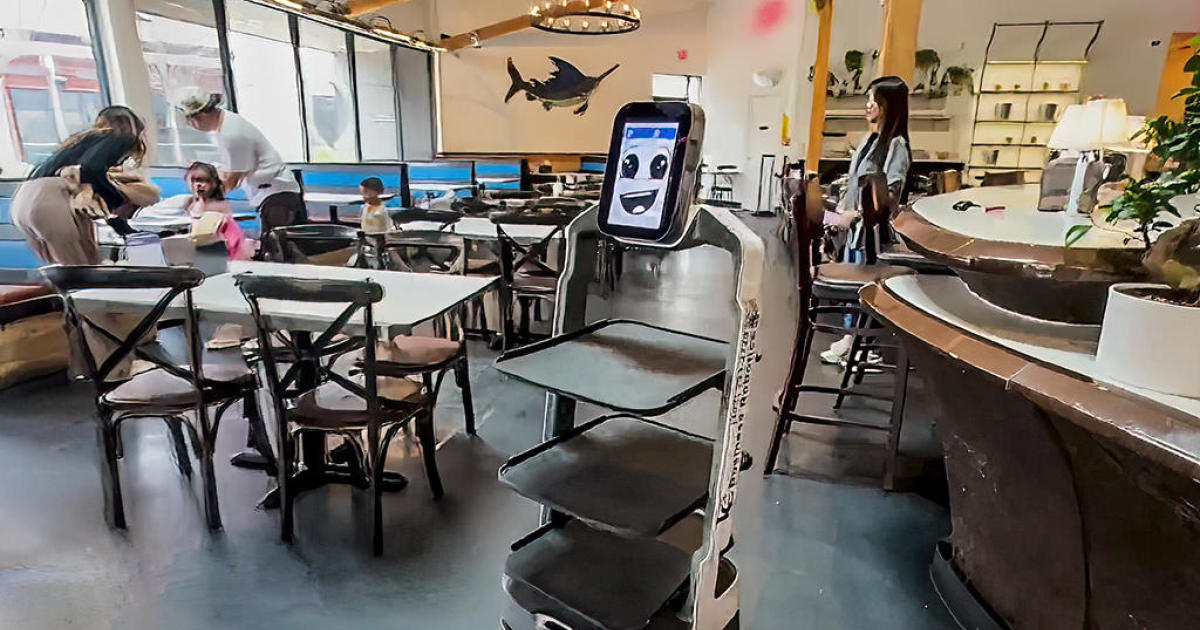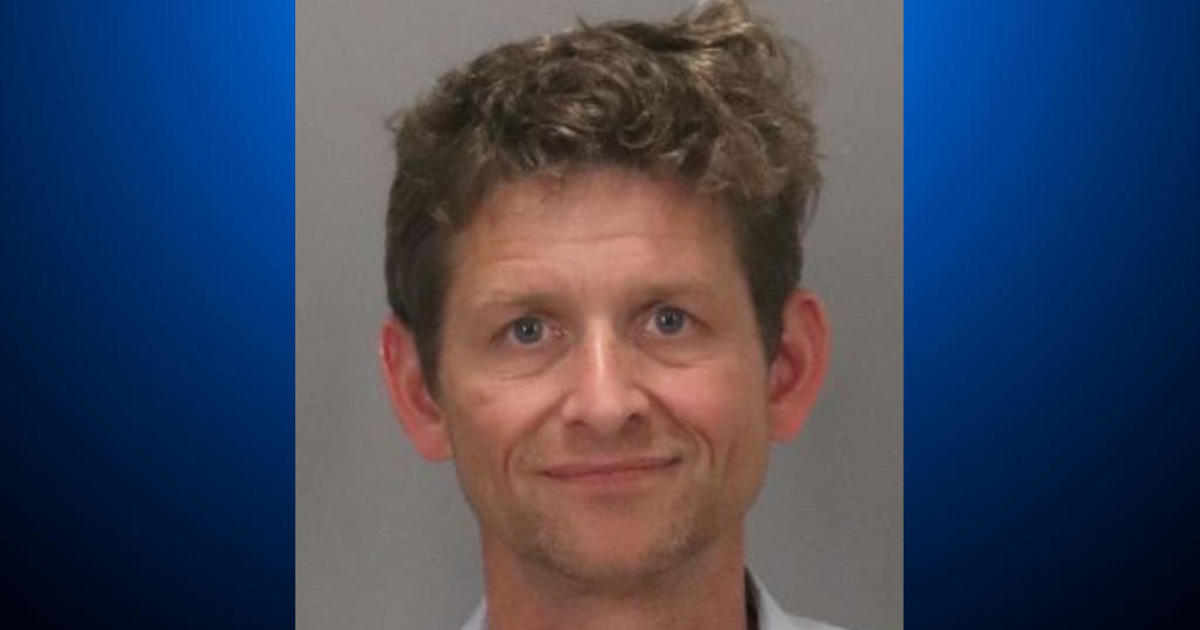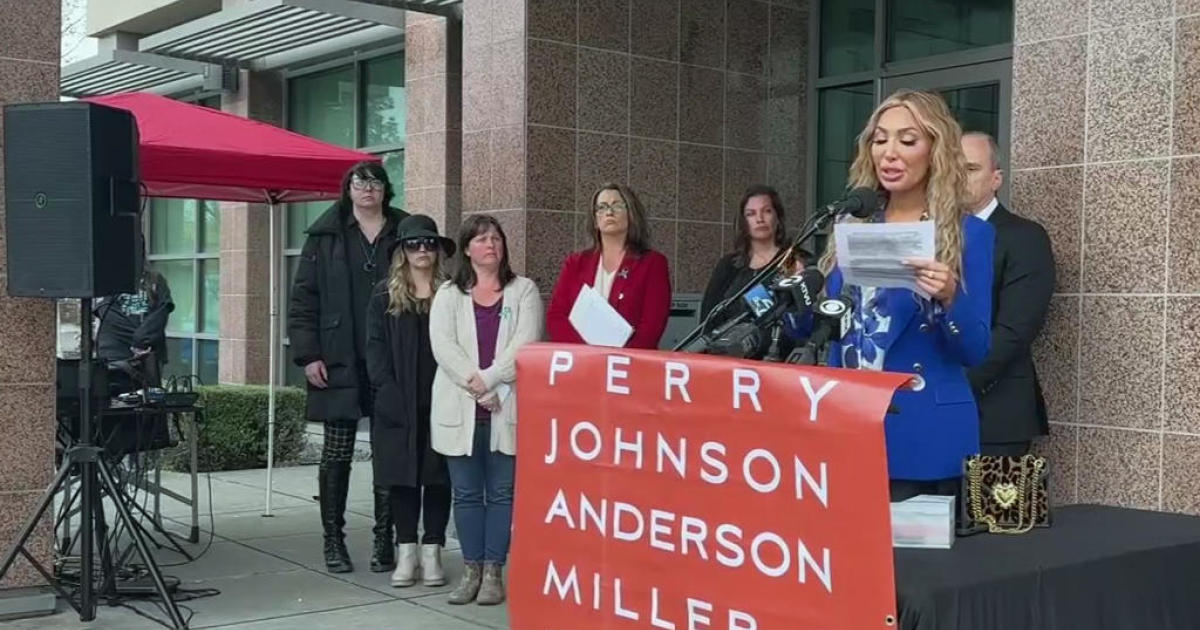Bay Area Student Rose Above Poverty To Success As New York Attorney Helping The Poor
By Wendy Tokuda
SAN FRANCISCO (KPIX) — Patrick Armstrong was a tall, gangly high school senior at Bellarmine College Prep in San Jose, when KPIX first profiled him in 2003.
Even then, he talked about his desire to help poor people. Now, he is an attorney doing exactly that, working for the Justice Center in New York.
Recently, a sold-out crowd at the Students Rising Above gala saw what Patrick has become over the last 12 years, as a striking young man walked confidently across the stage to speak.
All students rising are chosen for their character, but in Patrick's case, it's as if that character has been polished such that it almost glows. He talked about his long journey from that low-income kid who was often homeless to NYU law school and a rewarding job.
Patrick grew up one of five children who watched their parents struggle. His family lived for a time in the barbershop where his parents worked, when they had no place else to live, cooking on a stovetop and sleeping on a mattress on the floor.
Later they were homeless again. "We couldn't find a place to stay," he told us when he was 17.
"My mom was looking for a shelter. And a couple of nights we actually had to live out of the car we had. It was a station wagon.."
Sometimes there was no food.
"Coming from a family where generations of us have struggled, statistics indicate I was supposed to end up poor and homeless at some point," he told the gala audience. In other words, "I'm not supposed to be here."
Patrick decided early on, he was going to change that trajectory. He got a scholarship at Bellarmine College Prep, working to help pay for his education. His parents may not have had much materially, but they drilled the kids on the importance of an education.
"We knew that school was a prime focus, a big deal. In order to get out of the lifestyle, living this way for our children. We know that working hard in school, to get somewhere in life would definitely be the way to go," said Patrick at 17 years.
His character was evident even then. "Beyond doing the best on campus, he asks how can I help others?" observed his mentor at the time, Steven Pinkston. "So I look at this young man, I scratch my head, I'm amazed, I'm pleased. He's a wonder."
As Patrick's mom worked two jobs to support the family, he took on a bigger role raising his little sister, often staying up with her at night when she was an infant.
After school and basketball practice, he would go home and spend some quality time with her. Watching his mother struggle and worrying about his little sister's future had a profound effect on Patrick. A question occurred to him: if watching them hurt him so badly, shouldn't he be concerned about other families that struggle? He decided the answer was yes and that became the foundation of his future in the legal profession.
Patrick was a first generation college student. He attended UC Berkeley and was accepted into Students Rising Above.
"Every step of the way SRA was there for me, whether I wanted them to be or not!" he told the gala audience, laughing.
"Even when I tried to get away from them or got very busy and just forgot to check-in, I would get an email from Lynne saying, 'Hey Patrick, just touching base,' or Barb would send me a text message asking, 'Are you free next week?'"
He now says that support helped him get through Cal; That plus the financial aid and assistance from SRA mentors. One even took him shopping for things he'd need in the dorm and then helped him move in.
A small story that will tell you more about Patrick's character and persistence: While he was at UC Berkeley, he was a walk-on for the Cal basketball team. But he was cut 3 years in a row. He didn't give up and in his senior year, he got to play.
After Cal, he got through NYU Law School.
Now, he works with the Justice Center in New York, changing laws to keep the poor from being treated unfairly in the criminal justice system. The new laws impact everyone in the justice system including the disproportionate number of poor people of color who end up in jail or prison.
When parents are incarcerated for a long time, it can have unexpected devastating effects on the family left behind- financially and emotionally.
"If someone does something wrong, they should be held accountable, but it needs to be an appropriate punishment. The Justice Center tries to find more money for substance abuse and mental health treatment for people in the system. Our work has the potential to keep families together," says Patrick.
Recently he has been spending a lot of time in Alabama working with state leaders to improve the prison system. The Prison Reform Task Force has approved a plan the Justice Center helped craft, the Senate passed the proposal and now it will go before the House.
Patrick concluded his remarks with this:
"If there is anything that SRA has taught me it's that we are not bound by our past. We can do more than our parents did. And we can accomplish more than we think, if we believe in ourselves."



